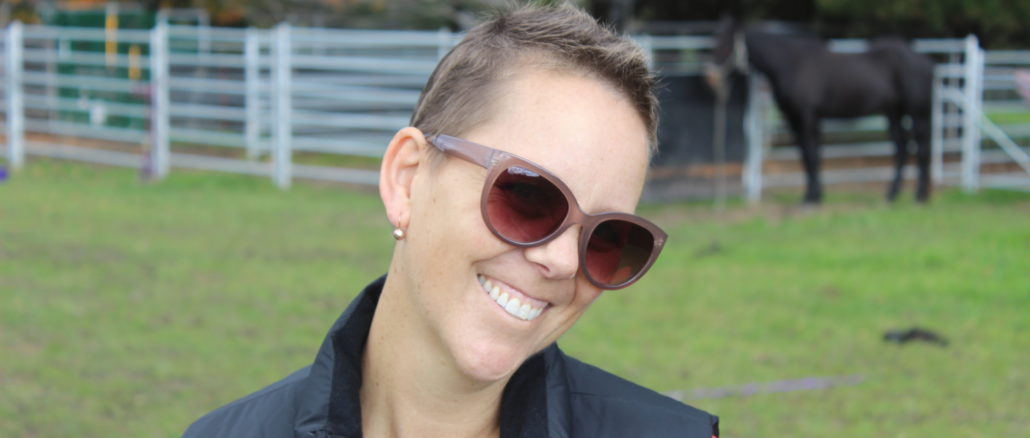
Liz Van Vliet thought that when her hair started to grow back that she was through the worst of what breast cancer had in store for her. However, she was to find that she hadn’t even scratched the surface.
In her book Coming Home from Breast Cancerville, Liz details how she continued to “smile and wave” as she grappled with the reality of survivorship. It is a raw and brutally honest account of her experience exposing what surviving actually looks like for countless numbers of women.
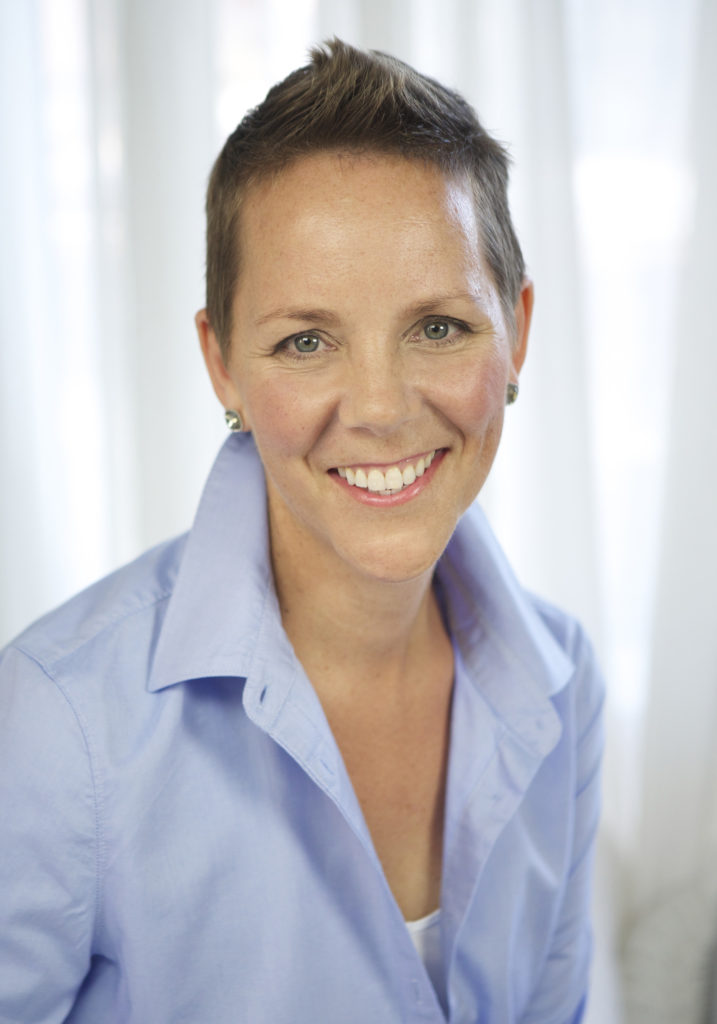
SheSociety delved deeper into the book and Liz’s story:
Q: Liz, when did you start writing your book Coming Home from Breast Cancerville and why?
I began writing my book in January 2015 when I was still on what I call Recovery Highway. Writing the book began as a way for me to process what I had gone through during treatment and in recovery but I was suffering PTSD so writing it was traumatic and it took time. Ultimately my writing became a form of self examination and self discovery and most importantly a path to self-compassion.
Q: Why is your book different to other cancer survival books?
There are many books that are helpful guides for navigating treatment but what I found is that there aren’t any that focus on how hard it can be to identify as a ‘survivor’ and how difficult the process can be to regain your confidence and self-belief after cancer knocks you off your feet.
My book shares the experience of being on the brink of suicide six months after people believed I had ‘survived’ and how it feels to not be a “good” survivor and so guilty about the fallout my illness had on my children and husband that they would have been better off if I’d died. My book tells the story of how I climbed out of this dark place and what it took to find my way to the point where I can identify as a survivor and have found purpose in that process.
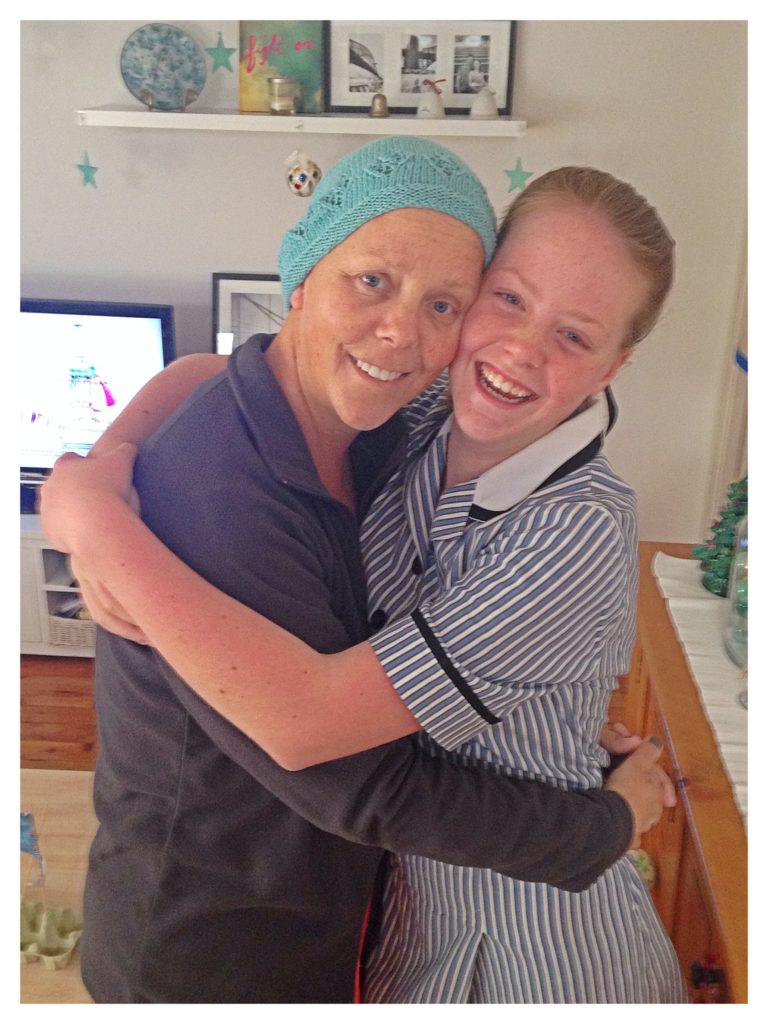
Q: You write about the mistake many make (sufferers, family, friends, and colleagues) that the end of treatment means a woman has survived, whereas the fight and suffering is far from over. Could you please explain this and what you still faced after your hair grew back and chemo ended?
To the onlooker and bystander, it can seem like everything is back to normal when the opposite is actually the case. In my case, my hair was growing back but I was living in chronic pain from the breast reconstruction surgery I chose. In the initial six months post surgery I was spending over $500 a week on physiotherapy and osteotherapy to manage the pain and try and regain strength. I tried acupuncture and was on prescription codeine for pain relief. I couldn’t stand for any length of time so cooking meals and doing housework was virtually impossible and my fatigue levels were still shockingly bad.
During this time I did what I describe as ‘smiling and waving’ as everyone lauded me for being a survivor and telling me how great I looked. Aside from the lingering physical effects I was also struggling mentally as a result of Tamoxifen, the medication I had been put on to keep cancer at bay. It causes a range of side effects and in my case caused me to slide into depression so severe I became suicidal. It was a terrible time and was something I kept hidden because of shame at not being a good ‘survivor’ and guilt at the thought that there are so many women that die from breast cancer and I had actually survived so why wasn’t I able to ‘bounce back’.
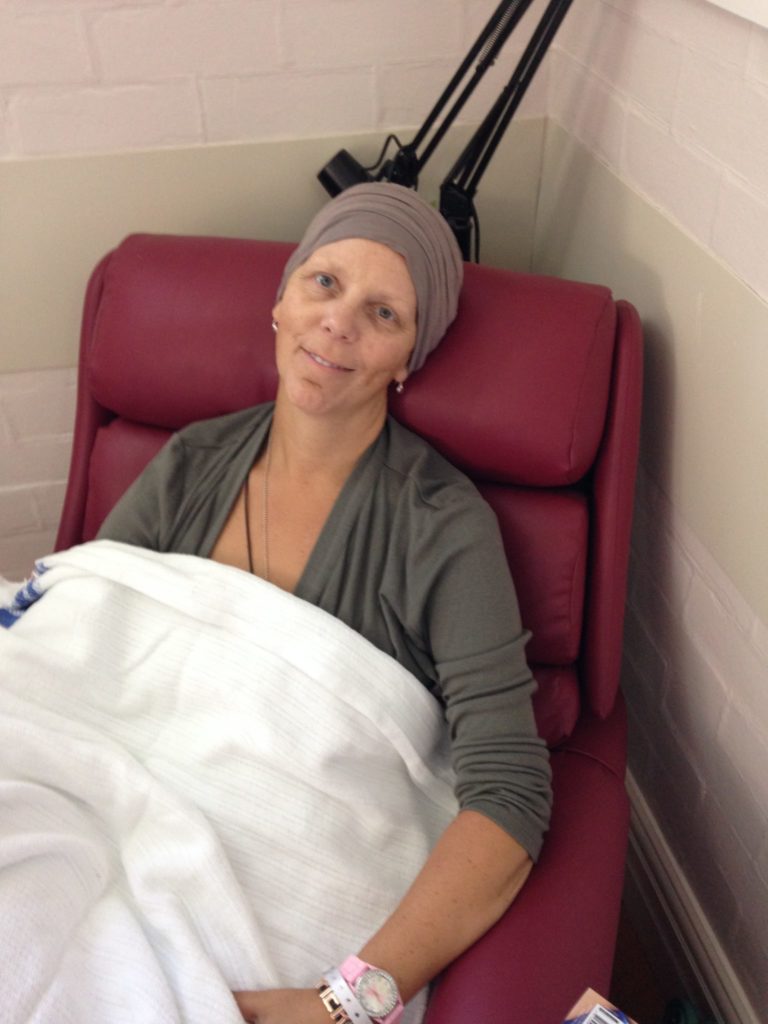
Q: What was the hardest part of your recovery process?
The thing I wanted most of all during my recovery was for my girls to feel that we had put breast cancer behind us. They all suffered anxiety and lived in fear they would lose me. The hardest part of my recovery was that I simply couldn’t pack up my experience (or theirs) and put it in a box. We couldn’t pick up where we left off and pretend it hadn’t happened. Instead I had to accept that I was different, that my life was different and get comfortable with our new normal.
Q: You write that at one stage that during your “recovery” you contemplated suicide. Could you tell our readers about this?
I didn’t just contemplate suicide. I actualised it. I was in such a terrible state of depression brought on by a reaction to the breast cancer medication. I felt so much guilt about the financial and emotional impact of my illness on my husband and children and felt like I was a dead weight pulling them under with me. I had resolved that suicide was the best course of action and had planned how I was going to end my life. I just hadn’t made a date. The thing that saved me was that I had a six-monthly checkup with my breast surgeon who noticed that I wasn’t myself and asked me some direct questions about my mental wellbeing. Alarm bells went off for her and thankfully she acted on them despite my resistance. It was a tipping point and thankfully it was the intervention that stopped me from going any further down that dark passage. It meant I was taken off Tamoxifen and two weeks later, feeling clear-headed although still fragile, I was able to look back on that moment knowing how close I had been to ending my life.
Q: How did your breast cancer and battle to recover impact on your family?
Where do I start? In so many ways. Each of my daughters experienced PTSD, my youngest daughter the most severely. The impact on my husband was deeply distressing because it left him feeling helpless and unable to change my reality and that of the girls. It affected our intimacy as a couple because of the physical and emotional fallout and we all felt vulnerable and fearful of the future. We had a saying though that without the rain there can be no rainbow and for our family the rainbow has been how going through this experience has made our family bond even stronger than it was before I was diagnosed. My daughters have an incredible sister-bond and the love and support that we offer each other during good times and bad can be directly attributed to the resilience that was forged during this period.
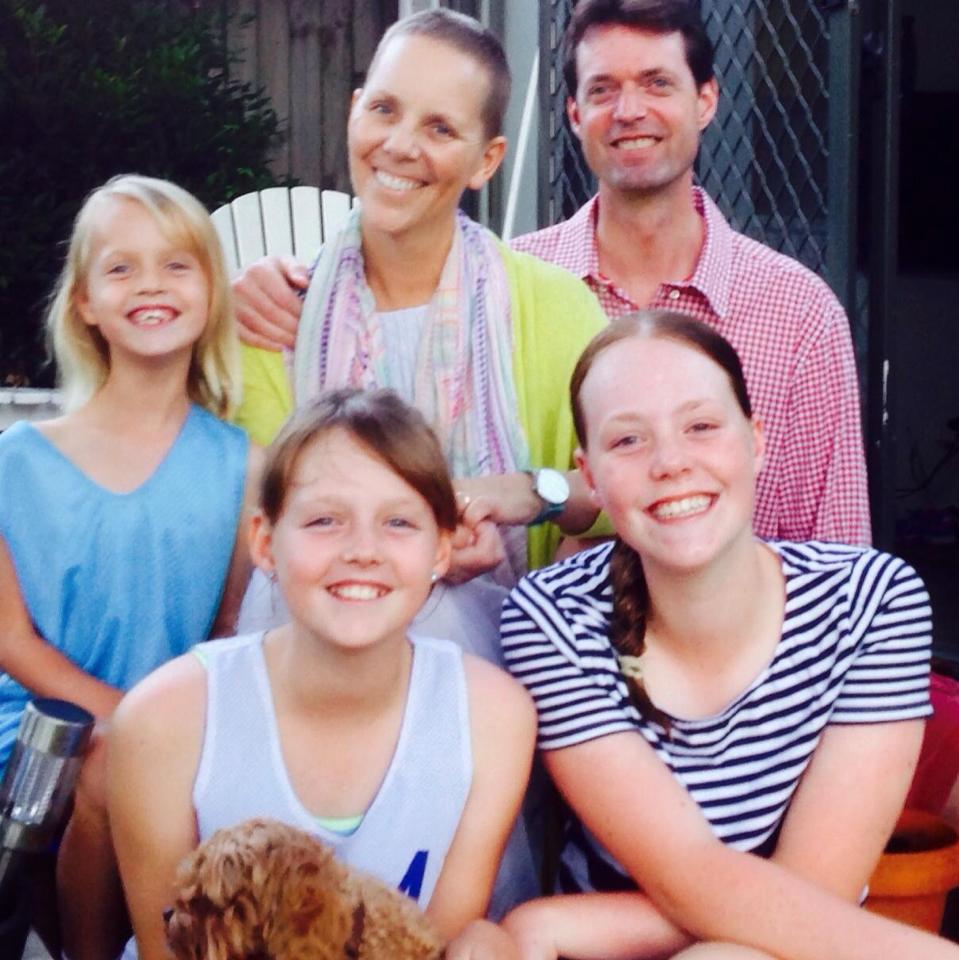
Q: How has your experience changed you?
I have been irrevocably changed. I am kinder to myself. I’ve realised that a by product of a lifetime of low self esteem is that I was always great of expressing kindness and compassion to my others but I was incapable of practising it when it came to me. My road trip has been about self discovery and self acceptance but ultimately it’s a story of showing myself compassion. I found that I could recover physically and I could recover mentally but in order to recover spiritually I had to find a way to be truly kind and compassionate to myself.
Q: Could you tell our readers how you are helping women who have “survived” breast cancer develop their own confidence and the skills to be seen as indispensable in the workplace.
I have a podcast called “Being Indispensable” where I talk about the Power Skills that are required to be perceived as indispensable or irreplaceable in the workplace. These Power Skills are also called ‘Soft Skills’ but they’re anything but soft. They are skills that enable women to communicate effectively, influence others and be assertive. As well as the podcast I deliver in-house training and coaching to help women develop their Power Skills.
I work specifically with office professionals, personal and executive assistants who can lack confidence and self-belief. Helping them build practical skills that transform their interactions with others is hugely rewarding and it is only because of breast cancer that I’ve ended up doing what I’m doing. When I was desperately trying to put breast cancer behind me, I went back to work as an Executive Assistant and discovered that there was a thirst for the knowledge and experience that I had built in this area throughout my previous career in sales and marketing. I didn’t last as an EA because it was too taxing on my health (I was still on Recovery Highway) but feedback from podcast listeners encouraged me to start my business delivering coaching and training to help this group of women. The sense of purpose I have gained from doing what I do has been key to feeling like I’m well and truly on Survivor Highway.
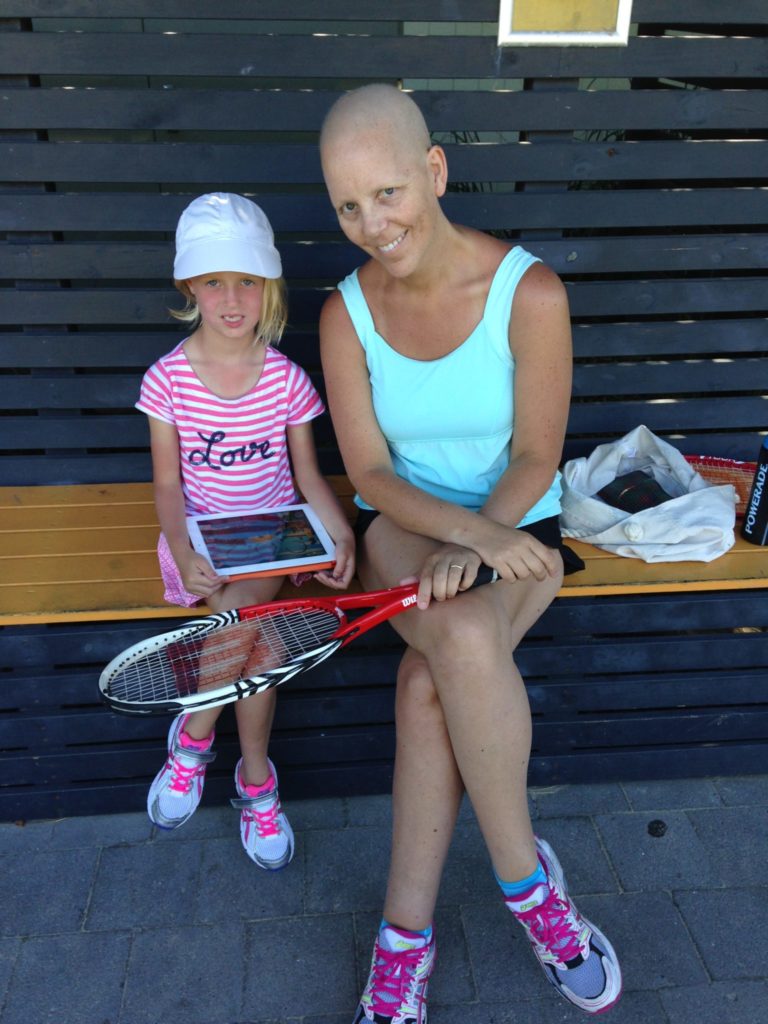
Q: What would be the first advice you would you give to women who are diagnosed with breast cancer?
I would tell them that it’s okay not to be okay. Breast cancer can knock you off your feet and it’s so important to be kind to yourself. I’d also want them to know that breast cancer doesn’t end when treatment does. I describe it as Treatment Highway, Recovery Highway and Survivor Highway and they’re all different stages on this road trip. I’d also want them to know that it is self compassion and self awareness that helps you navigate each stage and finding your way onto Survivor Highway is possible.
Q: What would be the first advice would you give family, friends and colleagues of women diagnosed with breast cancer?
The first advice would be that breast cancer doesn’t end when treatment does and when the person’s hair grows back is the time to be aware that they may be ‘smiling and waving’ and actually need as much, if not more support from you.
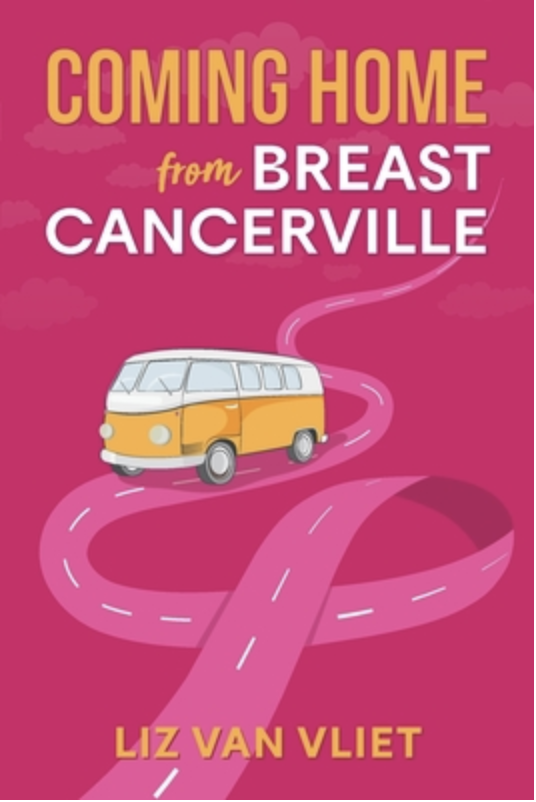
Liz’s book Coming Home from Breast Cancerville is available to purchase here:
https://www.goodreads.com/en/book/show/47512392-coming-home-from-breast-cancerville
If this story has triggered anything for you or you know someone who needs help please contact 1800Respect on 1800 737 732.
SheSociety is a site for the women of Australia to share our stories, our experiences, shared learnings and opportunities to connect.
